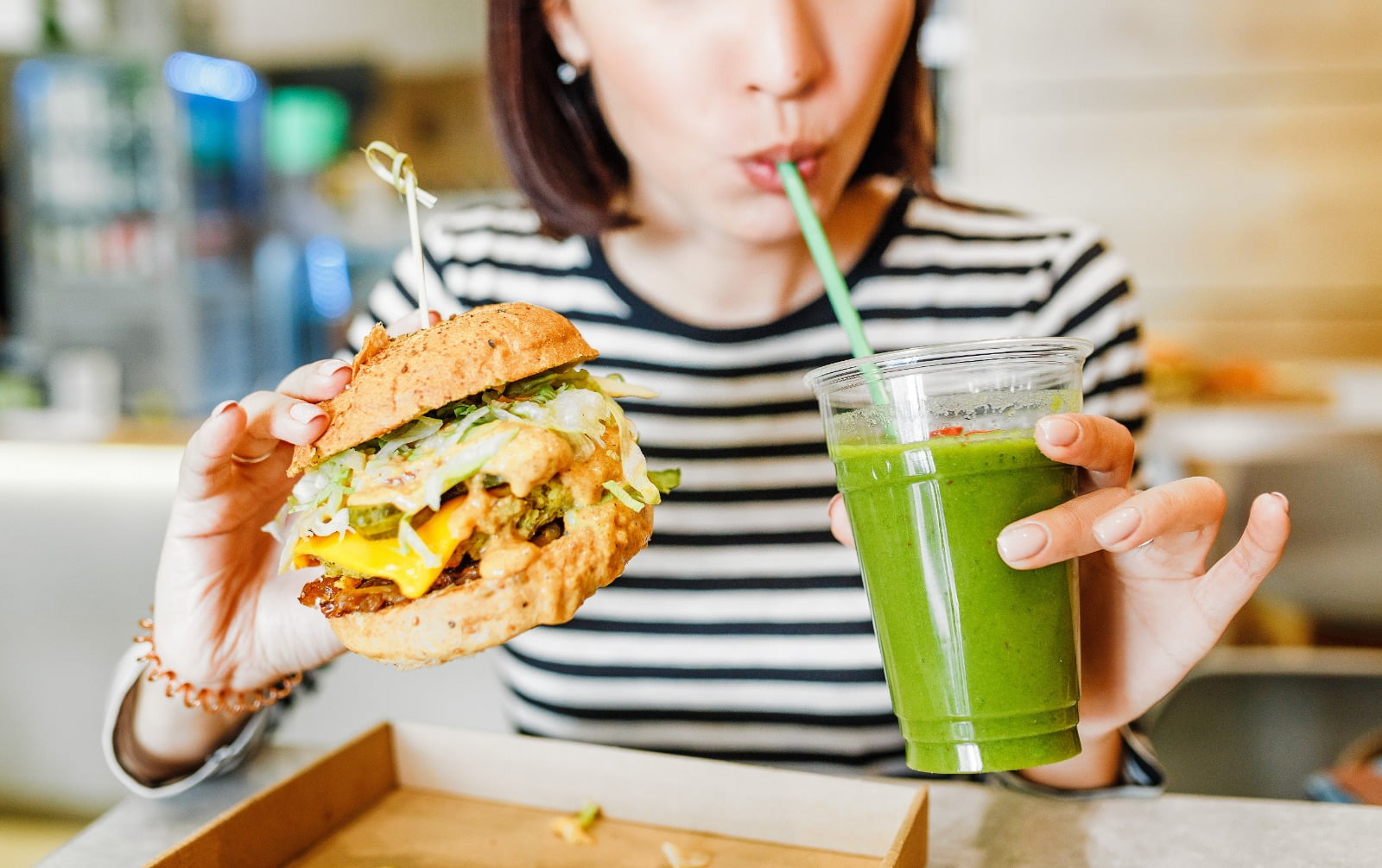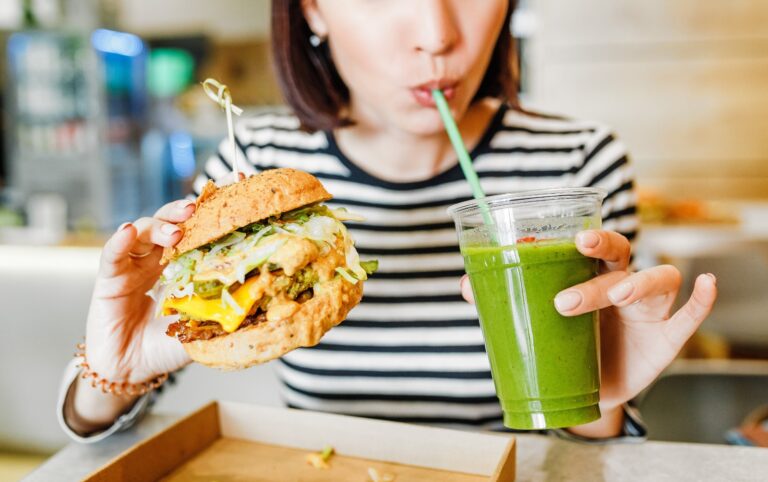What is the best diet for healing after surgery? Do vegans recover from injury faster? Does a vegan diet affect your ability to heal?

A vegan diet is all the rage with people looking to reduce their carbon footprint, eat ethically, and be healthier. But are these diets possible during recovery from surgery?
Vegan diets have been extolled as the perfect diet by many, but one area where they’ve undergone criticism is in their ability to heal the body after surgery.
In some cases, issues with recovery can be due to medical neglect and misconstrued as a lifestyle issue. The question is, is veganism a lifestyle to continue during recovery?
In this post, we’re going to discuss whether recovering from surgery on a vegan diet is possible. Then, we’ll give you some advice on how to make sure your diet has everything you need to heal.
How a Vegan Diet Affects Your Body’s Ability to Heal Itself
There is much debate around whether vegan diets make it more difficult for the body to heal or not. Studies show wildly different results based on their biases, so the only way to find out for sure is to look at the places where these studies agree.
One study in the Journal of the American College of Nutrition suggests that vegan diets are bad for recovery. They state that milk protein is better able to support muscle protein synthesis after exercise than soy protein.
However, Neal Barnard, an associate professor of medicine at George Washington University, disagrees with this study. He suggests that you can get enough protein from a vegan diet as bulls, stallions, elephants, and giraffes eat only plants and recover from injury.
As you can see from the above statements, the major disagreement is over which proteins are best for recovery. So, what both sides of the debate agree on is that a high-protein diet is a key to recovering from surgery effectively.
There are further, non-partisan studies that back up this hypothesis:
- A 1998 study in the Journal of Burn Care and Research found that an increased protein intake improved the body weight and muscle strength of burn patients.
- A 2006 study in the Journal of Bone and Joint Surgery found that adult male rats with bone fractures had greater body mass, muscle mass, and mineral bone density on a high protein diet.
Based on this evidence it seems that diets high in protein are the best way to recover. There are also lots of vitamins that help with surgical recovery that we’ll discuss in the next section.
How Do You Make Sure Your Vegan Diet Will Help you Recover from Surgery?
A balanced diet is usually the best way to get what you need when healing from surgery. That said, it’s not impossible to meet your needs on a vegan diet if you plan your meals well. Here are the things you need to include in your vegan diet to boost the healing process:
Vegan Proteins
With dairy and meat products out of the picture, you have to find your protein elsewhere. The best places to get protein on a vegan diet are:
- Nuts, seeds, and nut butter: these are easy to snack on, spread on toast, or put into a smoothie.
- Tofu: made from soybeans with nine essential amino acids, making it an excellent source of protein and another easy one to add to your diet.
- Beans and legumes: versatile sources of protein that can be included in all sorts of recipes (kidney beans are especially protein-rich).
- Chickpeas and lentils: these two are great sources of protein, with 19 per 100 grams for chickpeas and 26 per 100 grams for lentils.
- Nutritional yeast: known as nooch to some, this powder can be sprinkled on anything, like popcorn or mac and cheese, and used in most cooking.
- Tempeh: a traditional Indonesian ingredient, this soy-based product provides 15 grams of protein per serving, and is a good source of calcium, iron, and manganese.
- Vegan meat: often made from soybeans, legumes, or nuts, these meat alternatives can provide all the protein you need, with none of the guilt.
Protein is the main substance you need when recovering from surgery as you can easily consume too little on a vegan diet. However, there are other vitamins your body needs to recover that you should also include.
Beta-Carotene
Vitamin A boosts your body’s immune system and can only be found in animal products. However, the precursor to vitamin A is beta-carotene, which is found in a variety of plant products.
Beta-carotene converts into vitamin A when your body needs it to. So, having it in your diet means your body will be able to supply itself with vitamin A when it requires it. Foods that contain this precursor include:
- Sweet potatoes
- Carrots
- Mangos
- Cantaloupes
- Butternut squash
- Pumpkin
- Kale
- Spinach
Vitamin C
Vitamin C is essential for recovering from surgery because it promotes wound healing and bleeding prevention. The best way to include it in your diet is to eat:
- Citrus fruits
- Kiwi
- Strawberries
- Bell peppers
- Broccoli
Vitamin E
Similar to vitamin A, vitamin E strengthens the body’s immune system allowing it to more effectively fight infection after surgery. This vitamin also fights free radicals in the body and promotes healing which improves the appearance of scar tissue.
You can get vitamin E from:
- Topical creams
- Almonds
- Sunflower seeds
- Wheatgerm
As a quick side note: if you take up obsessive almond consumption, you’ll be able to cover both your vitamin E and protein needs. This is because almonds have over 30 grams of protein in one cup, and half a person’s daily vitamin E requirements.
So, Can You Recover from Surgery on a Vegan Diet?
In this post, we’ve discussed the debate on whether vegan diets prevent healing. We’ve also given you some tips on how to make sure your diet gives you the best opportunity to recover from surgery.
The main takeaways are to ensure you have enough protein in your diet to encourage muscle regeneration and to include vitamins A, C, and E to help your body heal and fight infection. If you meet all these requirements, there’s no reason your body shouldn’t be able to recover from surgery on a vegan diet.
* Please be advised that this article is for general informational purposes only, and should not be used as a substitute for advice from a trained medical professional. Be sure to consult a medical professional or healthcare provider if you’re seeking medical or mental health advice, diagnoses, or treatment. We are not liable for risks or issues associated with using or acting upon the information on this site.*
photo source | adobe


